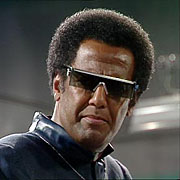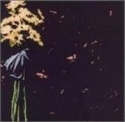|
Hieronymous Alloy posted:His best book to date is "Android's Dream," which is more of a Douglas Adams + Vernor Vinge knockoff than a Heinlein knockoff. It's genuinely funny, fairly observant, and he gets free of Heinlein's shadow. I'll give it a read sometime, but it's tough to care about guys who are good enough for mass market paperbacks when Egan and Chiang are doing such interesting, and beautiful things, respectively. fake edit: Just realized I'm in the Space Opera thread.
|
|
|
|

|
| # ? May 9, 2024 22:16 |
Miss-Bomarc posted:Meh, not really in the first one; there's one bit where someone attempts to peacefully contact an alien race and is instantly killed, and another bit where it turns out that an evil sentient fungus was slowly infiltrating the colony and then suddenly destroyed it from within--and the colonists could have kicked it out, but they were too lazy to bother, doesn't this maybe make you think of COMMIE SUBVERSION!?!?!?? !! @! Or something like that. Yeah, the only point where it comes across in the first one is where he has the nervous breakdown because he's literally stomping the poo poo out of a race of tiny, tiny people, a la Rampage, and he basically gets sick of being a monster. In the later books the central point is that the ultra-militaristic approach humanity's taking is inherently unsustainable. He's too good a writer to do it too obviously, because he's trying to sell books first, but the subversion of the tropes are there. If you read Scalzi's blog it's pretty clear that he's pretty drat left-wing. Hieronymous Alloy fucked around with this message at 04:58 on Jun 14, 2010 |
|
|
|
|
Hieronymous Alloy posted:[Scalzi's] too good a writer to do it too obviously, because he's trying to sell books first, but the subversion of the tropes are there. If you read Scalzi's blog it's pretty clear that he's pretty drat left-wing. PS that blog post is a big long list of White People Problems. Oh no, the special clothes I wear to keep my dick-sweat from staining my shorts were bought secondhand, I had to wash them before I wore them. Miss-Bomarc fucked around with this message at 05:35 on Jun 14, 2010 |
|
|
|
Miss-Bomarc posted:To sum up, there's nothing that Scalzi writes that Ringo didn't write better earlier--and, for that matter, that David Drake didn't write better and earlier than Ringo I take exception to the idea that John Ringo ever wrote anything good, ever.
|
|
|
|
Chairman Capone posted:I take exception to the idea that John Ringo ever wrote anything good, ever. Ringo is one of my dirty pleasures. I'll be the first to admit that his books are horrible, but they're balls-to-the-wall over-the-top fun cheese horrible. (Except for the sex stuff in his Ghost books. I almost mentioned it earlier, in reply to Hamilton's sex scenes, but it's not a space opera and they quite frankly make me feel dirty after reading them...) I really like his Looking Glass books, even though it's basically 'The Adventures of Two-Gun Berg the Mary Sue' it's also goddamn glorious.
|
|
|
|
WarLocke posted:Ringo is one of my dirty pleasures. I'll be the first to admit that his books are horrible, but they're balls-to-the-wall over-the-top fun cheese horrible. The Ghost series of his absolutely terrible on just about every level and reveals just how terrible a person Ringo is, since he's said that it's just a way for him to write out his own personal fantasies. So apparently his fantasies include BDSM incest and sex with 14 year old Eastern European sex slaves. After that I can't stomach reading Ringo's poo poo for even light passing-time reading. Not to mention the fact that I've heard him talk at a convention and he came across as really, really crazy - he was talking about Starship Troopers in a way that seemed like he was defending the notion that it was about fascism, but that fascism was a good thing, and he mocked Paul Verhoeven for letting growing up in Nazi-occupied Holland tinting his adult views on militarism.
|
|
|
|
papa horny michael posted:I have the same problem with John Scalzi. Everyone seems to like his stuff, but jeeze, if I wanna read a rewrite of heinlein/haldeman junk, or the abominable Agent to the Stars. I agree and was pretty underwhelmed. It didn't help that I nearly read Forever War/etc back to back with Old Man's War and sequels (Haldeman first), I guess (in that it added to being underwhelmed, and now I continually mix aspects of both series up). Don't do this. The people that recommended or mentioned Old Man's War to me all hadn't read similar stuff at all, especially not reaching back to the '70s, so that might explain why it got so overhyped. (Also, Haldeman totally did the anti-Heinlein commentary 30 years before, adding to the similarities (surprisingly many).) I never see this mentioned in space sci-fi threads but: Julian May (Rampart Worlds trilogy, maybe even the Galactic Mileu stuff (which is better) is a good read, and the Rampart Worlds stuff has a similar feel to Dan Simmons' sci-fi. Hamilton's been on my to-read list for ages (7+years), and this thread's kind of putting me off of him now 
|
|
|
|
Tanith posted:TLDR: It really isn't particularly complicated, but you're right, Vinge doesn't hit you over the head with all the 'rules' of his settings. That said, I certainly don't think Fire is more challenging than most far-future/post-human sci-fi. If you're struggling with it, I'd suggest you not read any Charles Stross, given his inclination to providing the reader with even less information. quote:The conclusion wasn't particularly fulfilling either, and the purpose of traveling to the planet in the first place beyond simply rescuing the children, if this even merits spoiler tags? seemed vague. I felt that he didn't do a good job bridging the events of the very beginning and explaining their significance to the intervening book. The pace of exposition wasn't to my liking, and the fact that a great deal of the book takes place in a decidedly non space-operatic setting turned me off. You really think the sole result of the book was rescuing the children? Did you, in your disdain for the usenet messages, skip over the entire, rather significant plot point of the Blight, you know, subsuming effectively all life within its rapidly expanding domain? quote:The net-style bits of conversation didn't appeal to me much either, because while maybe true to the style of the universe and helping convey the actual dialogue between characters, it doesn't make for interesting reading. I was about as enthused by that as by the interaction in Hyperion or the Fall of Hyperion with one of the greater sentient intelligences. If he'd limited these sections to some net article at the beginning of each chapter about the current events or as some other form of associated fluff to help flesh out the universe, I would have liked that more. Vinge was explicitly calling back to the old days of BBS postings and usenet. Which itself ties in with the overarching concept of the Zones of Space; that is, the universe he made has fundamental limitations in terms of technological potential depending on geography. Without the Zones, Vinge believes that space-faring civilizations can't possibly be rendered in a fashion conceivable to us, which is what the Transcendant Powers represent. quote:Feel free to disagree with me and point out why I should reread the stuff, but in general it just really didn't fit with my interests. Maybe Vinge is too cerebral an author for me, but space opera is supposed to be pew pew zoom zoom. You can have whatever preferences you want in what you read. I'd certainly agree that Vinge's novels have more substance than your average Hamilton or Scalzi book, which is why I (and many others) like them.
|
|
|
|
Noricae posted:I never see this mentioned in space sci-fi threads but: Julian May (Rampart Worlds trilogy, maybe even the Galactic Mileu stuff (which is better) is a good read, and the Rampart Worlds stuff has a similar feel to Dan Simmons' sci-fi. May's having a tough time staying in print, for whatever reason. I read a couple of the Rampart World books, and I honestly can't remember any significant details with regard to the plots. She also put out a Fantasy series that was nearly impossible to track down even immediately after release. I'd guess she sells very poorly. Anyway, Hamilton is fun. Definitely on the pulpier side of sci-fi of late, although he has some interesting thoughts along the way, but entertaining nonetheless. The sex stuff is largely ignorable, and if you seriously find overly purple descriptions of multi-body sex that off-putting, I'm not sure why you'd be reading SPACE OPERA in the first place. It's a bit tacky, but you can always, you know, skip a couple pages.
|
|
|
|
Noricae posted:I agree and was pretty underwhelmed. It didn't help that I nearly read Forever War/etc back to back with Old Man's War and sequels (Haldeman first), I guess (in that it added to being underwhelmed, and now I continually mix aspects of both series up). Don't do this. I loved OMW and bought 2 of the sequels so far; I really dig Scalzi. That said it's no Forever War, but what could be? That book is a giant.
|
|
|
|
I've read a few reviews of Julian May's works and it all seems too mystical in a trippy seventies way. Is the writing any good?
|
|
|
|
Velius posted:Vinge was explicitly calling back to the old days of BBS postings and usenet. Which itself ties in with the overarching concept of the Zones of Space; that is, the universe he made has fundamental limitations in terms of technological potential depending on geography. Without the Zones, Vinge believes that space-faring civilizations can't possibly be rendered in a fashion conceivable to us, which is what the Transcendant Powers represent. My fictional sensibilities disagree with his fictional sensibilities and in my mind this is not how universes work. v (and the And no I didn't miss the Blight, it was the pertinence of J&J to saving the universe that I didn't feel was made clear. Connecting the two plot threads in a meaningful way was something I felt didn't happen. I was hooked in by the prologue, but I felt the book went in a different direction I didn't care for after that, an experience analogous to reading the entire Dune series. Moving on: I've given up on Honor Harrington after the second book. On Basilisk Station was interesting, and I think one of the strengths of it was the fact that gender was almost completely irrelevant. The about-face on that subject in the second book, combined with Harrington's meteoric ascendancy to a point I refuse to believe one can improve upon without some ridiculous Mary Sue stuff bodes poorly for anything after this...and given that there are something like nine more books, stopping while I'm ahead seems prudent. Tanith fucked around with this message at 19:18 on Jun 14, 2010 |
|
|
|
papa horny michael posted:I've read a few reviews of Julian May's works and it all seems too mystical in a trippy seventies way. Is the writing any good? I've read most of her output out of a need for story closure, but I don't really recommend them. There are some interesting takes on a mixed mutant-power vs. normal humans societies and aliens, but the characters are often Mary Sues and the plots are a little forced. Also incest and magical ESP crystals.
|
|
|
|
Tanith posted:Harrington's meteoric ascendancy to a point I refuse to believe one can improve upon without some ridiculous Mary Sue stuff bodes poorly for anything after this... Good catch. Weber even goes so far as to have Honor be able to eat all the deserts she wants without gaining an ounce. If that isn't the very definition of Mary Sue-ism then the definition needs to be updated.
|
|
|
|
mllaneza posted:Good catch. Weber even goes so far as to have Honor be able to eat all the deserts she wants without gaining an ounce. If you want the honest truth, it was finding out she didn't keep the eye patch that ruined it for me.
|
|
|
|
Hieronymous Alloy posted:Agent to the Stars was his first unpublished book, they just threw it on the 'net for free once he became a "name." I really enjoy the majority of Scalzi's work, but Android's Dream is one of the few books I can remember putting down permanently after a hundred pages. I gave it to a friend to read and he had the same lack of interest. From what I can remember, the issue I had was that the "wackiness" seemed superficially Adams-esque but wasn't actually funny, and I found myself cringing more than being amused.
|
|
|
|
Tanith posted:If you want the honest truth, it was finding out she didn't keep the eye patch that ruined it for me. That was awful, but you gotta admit it wasn't very Mary Sue-like.
|
|
|
|
Velius posted:Vinge was explicitly calling back to the old days of BBS postings and usenet. Except that /Fire/ came out in like 1992 which was literally the golden age of usenet. (And supposedly one of the microcharacters is vaguely based on an actual usenet person)
|
|
|
|
Astroman posted:I loved OMW and bought 2 of the sequels so far; I really dig Scalzi. That said it's no Forever War, but what could be? That book is a giant. I'd stop there. A friend loaned me all four books, and I found Zoe's Tale / The Last Colony to be repetitive and frankly a waste of time. If you want to tell the same story from two different perspectives, that's what having multiple protagonists in the same drat book is for. To be honest, it didn't help that I got the order wrong and read Zoe's Tale first, but even then it is by far and away the weakest book in the series.
|
|
|
evilbastard posted:I'd stop there. A friend loaned me all four books, and I found Zoe's Tale / The Last Colony to be repetitive and frankly a waste of time. If you want to tell the same story from two different perspectives, that's what having multiple protagonists in the same drat book is for. From his blog it was pretty clear that he wanted and had planned to stop with Last Colony but the publishers pushed him to write a fourth book. And yeah, I skipped Zoe's Tale also, for the same reasons -- "second viewpoint" novels always blow.
|
|
|
|
|
evilbastard posted:I'd stop there. A friend loaned me all four books, and I found Zoe's Tale / The Last Colony to be repetitive and frankly a waste of time. If you want to tell the same story from two different perspectives, that's what having multiple protagonists in the same drat book is for. Zoe's Tale is a Young Adult Novel, it's not directly a fourth book of the series, which is the reason it has a different tone, perspective, focus and second perspective on the third book.
|
|
|
|
Decius posted:Zoe's Tale is a Young Adult Novel, it's not directly a fourth book of the series, which is the reason it has a different tone, perspective, focus and second perspective on the third book. That sounds like a retroactive take on it, given that if the other three books are not young adult novels how is a young adult supposed to even know what's going on?
|
|
|
|
Velius posted:
Not to forget the tines personality groupings being based on systems of small computer networks.
|
|
|
|
Velius posted:Anyway, Hamilton is fun. Definitely on the pulpier side of sci-fi of late, although he has some interesting thoughts along the way, but entertaining nonetheless. (I've already read a lot of stuff mentioned in this thread other than the above, and stuff like Honor Harrington (no thanks), John Ringo (ditto), the Gap Cycle (added that to my to-read list - I didn't like his fantasy at all however) & Ken Macleod (also added). Thanks thread  ). ).papa horny michael posted:I've read a few reviews of Julian May's works and it all seems too mystical in a trippy seventies way. Is the writing any good? Her stuff varies a lot, and my favorite novels by her - way ahead of any other, are the Intervention pair (first contact with galactic federation type alien alliance storyline, emergence of telepaths around the earth complicating matters), which is full of political maneuvering, characters with questionable morals and motives, and some interesting takes on alien races. I think most people mention the Pliocene books (... prehistoric lizardmen and band of futuristic humans stuck in the past, meh) in connection with her, and they're definitely in the trippy '70s category. I recommend those two novels though, and maybe the Galactic Mileu follow ups, as it resolves some stuff (but as mentioned, does have some Mary Sue aspects, I guess). As for writing quality, I think she's very good, both grammar/sentence structure, characterizations and plotlines, at least for the above five books, from what I remember (but it's been 10+ years for most of this for me, maybe I should reread sometime) - really, Dan Simmons' sci-fi stuff is what comes to mind, style wise, for me, as a comparison. Noricae fucked around with this message at 17:45 on Jun 16, 2010 |
|
|
|
Noricae posted:The more science, the better, in my sci-fi, if that helps, and is probably what determines what I pick up more often than not I like James P. Hogan and Stephen Baxter for more technical science stuff, although Hogan tends to err toward Sean McMullen's Souls in the Great Machine is for all intents and purposes a space opera minus the space ships, and I highly recommend it. I haven't read the sequel(s), though, so no idea if the quality continues on. I happen to like Catherine Asaro's Skolian Empire series, it's pretty much the definition of space opera. But she's definitely more of a 'girly' writer, lots of talk about feelings and relationships, so probably not for everyone. On the MilSF front, Keith Launer's BOLO stuff is pretty technical, if you really get into weapon specs and weight of armor and force calculations and such. Joel Shepherd's Cassandra Kresnov books (Crossover, Breakaway, Killswitch) are also pretty good, very technical, but more small-unit tactics than space opera. I fully expect most of those to get panned. I've come to the realization that I have pretty terrible taste in books.
|
|
|
|
Definitely seconding Stephen Baxter if you're into the technical/hard-sf side of things. Pretty much anything he does is amazing and mind-blowing. He definitely has the ability to take things to a truly universal level that dwarfs humanity.
|
|
|
|
Noricae posted:the Gap Cycle (added that to my to-read list - I didn't like his fantasy at all however) & Ken Macleod (also added). Thanks thread Nothing is more Space Opera than something based on the Ring Cycle. I love this series. It's hard-bitten, hosed up, ships blow up, people die, worlds change. I'll emphasize the hosed-upedness of the Gap Cycle. Some downright offensive and horrible things happen to characters in this series, both in their background and on the page as we're reading along. Book 4 ends with about 150-200 pages of some of the best space combat around. There isn't much more than a nod in Newton's direction, but ships spin for gravity, have to worry about momentum, and sudden intense acceleration can gently caress someone up if they aren't properly secured. Also, Angus Thermopyle. Great name, absolutely sick, twisted human being driven by fear and greed in that order. And a great whopping desire to share his pain and degradation with as much of the galaxy as he can reach. In this series he's a major character but only a relatively minor villain.
|
|
|
|
WarLocke posted:Sean McMullen's Souls in the Great Machine is for all intents and purposes a space opera minus the space ships, and I highly recommend it. I haven't read the sequel(s), though, so no idea if the quality continues on. The Miocene Arrow, book two in the trilogy, is basically "Meanwhile in America, land of biofuelled WWI-technology air-feudalism,". Book three actually brings both of the worlds together and wraps things up pretty well. The entire series is a hoot, and not just because it's about librarians controlling post-apocalyptic Australia.
|
|
|
|
Speaking of "Nothing is more space opera," We've talked about The Stars My Destination, right?
|
|
|
|
|
Magnificent Quiver posted:That sounds like a retroactive take on it, given that if the other three books are not young adult novels how is a young adult supposed to even know what's going on? Nah, he wrote it specifically as YA novel from the beginning, that's the reason the PoV is a teenage girl, which isn't really something your average SF-reader can relate very well to: quote:So that’s the gratifying part. The frustrating part is that one very large chunk of the book’s intended audience — teenagers and in particular teenage girls — have little if any awareness of the book . This is because despite the perception within the science fiction community that Zoe is a YA book, with nearly all the reviews and commentary about the book nodding in that direction, the fact is that the book was marketed as adult SF and shelved there rather than in the YA section. To be clear, this marketing strategy was one I was aware of and which had my approval and involvement, so this isn’t a kvetch about Tor, and I will thank you not to consider it so. They’ve been great with supporting the book. I like they wanted to see if a book like Zoe could help bring YA readers into the adult SF/F area of the bookstore. and more specifically here, also about Zoe's Tale being readable as standalone novel: http://whatever.scalzi.com/2008/02/03/thoughts-on-zoes-tale/
|
|
|
|
Decius posted:Nah, he wrote it specifically as YA novel from the beginning, that's the reason the PoV is a teenage girl, which isn't really something your average SF-reader can relate very well to: Ok so it's as stupid as I thought. I really don't think Zoe's Tale works well as a standalone novel. Technically, yeah I guess you could get some enjoyment out of it, but it's a straight-up continuation of the series. It's like claiming that the third Dark Tower book works as standalone because it's a really cool story about a wasteland.
|
|
|
|
WarLocke posted:Peter Watts' Starfish is nice too, although it's not a space opera.  ). ).Stephen Baxter is added to my list though (similar to Poul Anderson apparently? sold!); thanks multiple people! WarLocke posted:I happen to like Catherine Asaro's Skolian Empire series, it's pretty much the definition of space opera. But she's definitely more of a 'girly' writer, lots of talk about feelings and relationships, so probably not for everyone. Re: The Stars My Destination - never actually read that (but have read The Demolished Man, good book/writer!); I guess I should? Noricae fucked around with this message at 23:01 on Jun 17, 2010 |
|
|
|
Noricae posted:Stephen Baxter is added to my list though (similar to Poul Anderson apparently? sold!); thanks multiple people! If you like Anderson then you will love Baxter. Probably also Charles Sheffeild. Tomorrow and Tomorrow is a personal favorite.
|
|
|
|
One thing about Baxter (that I bring up just because the subject of this thread is space opera) is that while his two space opera series' (the Xeelee Sequence and the Manifold: Time series) are both really, really good you might also enjoy some of his stuff that's not really space opera. Mainly Anti-Ice (an early steampunk work based on stable antimatter being used as an energy source in the 1800s), Moonseed (a combination nanotech doomsday scenario/return to the Moon using early 2000s technology), Titan (a manned mission to Titan in 2008 using Shuttle technology after life is discovered there by the Cassini probe), Voyage (an alternate history where NASA sends out a manned mission to Mars in the 1980s instead of developing the Shuttle), and The Time Ships (an authorized sequel to The Time Machine that really covers way too many different topics to be listed here). Again, these aren't space opera (although I guess Anti-Ice and The Time Ships have elements of it) but if you're really interested in hard understandings of physics/geology/biology then I think those might all appeal to you. Also I will take any opportunity to promote Baxter I can get 
|
|
|
|
Ben Bova wrote lot of really neat books about manned missions with current era-ish technology to various planets in the solar system. They're listed under the "Grand Tour" section of the Wikipedia article: http://en.wikipedia.org/wiki/Ben_Bova
|
|
|
|
Noricae posted:Never heard of her either, and girly is ok, especially since female science fiction writers tend to be really underrated or even ignored in general and rarely mentioned on these forums so I appreciate any new ones I run across. There's some good stuff out there too that's largely ignored (Nancy Kress, Octavia Butler, Connie Willis, Atwood, although writers with fantasy fanbases are an exception (Le Guin, Friedman)) probably because most of these writers don't include Heinleinien orgies, hehe. If a hint of girl doesn't send you running, I want to reiterate Lois McMaster Bujold's Miles Vorkosigan books for this thread. She has a deft touch with the crowning-moment-of-awesome line and puts an admirable amount of thought into the social makeup of her made-up societies and cultures. The books are all moderately and satisfactorily self-contained, so you needn't worry about getting sucked into a series of cliff-hanger endings with impossibly distant publishing dates.
|
|
|
|
Tanith posted:Moving on: I've given up on Honor Harrington after the second book. Stopping after #2 is early but not unreasonable; stopping after #4 is required. I've said this before but I'm absolutely convinced now -- Weber is writing so much poo poo lately that when he gets stressed for deadlines he falls back on his wargaming. So his books read like dice rolls; you can hear the loving things as he and his friends sit around a table making excel charts on their laptops while the Space Dungeon Master discusses how many superdreadnoughts the shipyards built that week with ECM3 AMBAM DSMBL MDM bhurfhgh blurghl. The problem is, reading what amounts to a fanfiction after-action report of a tabletop war game is boring as gently caress. Gonna make you all hate yourselves for reading this. quote:Despite the best efforts of both BuWeaps and BuShips, the Royal Manticoran Navy's missile pods kept obstinately proliferating, spinning off one new variant after another, and of late, pod capacity had trended steadily downward. The original "flatpack" pods, which had come in with the final generation of superconductor capacitors, had carried twelve MDMs each. Then along had come the next-generation flatpacks, with internal tractor systems. They'd still managed to keep capacity up to a dozen birds, but only until they'd shifted to the fusion-powered Mark 23. At that point, the designers had been forced to figure out how to cram in the pod's own fusion plant, since its new power budget had to be able to spin up the Mark 23s' plants at launch. The Bureau of Weapons had opted to hold the pod's dimensions constant in order to simplify handling and manufacturing constraints, despite the fact that it had dropped its capacity to only ten Mark 23s. I bolded that last line, but I really don't think I had to. It's not even the most egregious example I found in my speed-skim of the eARC, it's just that last line polishes it off so well. From his latest, Mission of Honor. You're all reaching for the Excedrin now, right? I did. On the other hand, I'll give Weber about 1 point for constructing the most elaborate Joe Buckley joke so far. As I understand it, the guy who runs the Baen CD site is named Joe Buckley, and the site is called the Fifth Imperium, after Weber's Dahak series. You'll find characters named Joe Buckley dying in horrible ways or being otherwise useless in a ton of Baen books; a reporter in the 1632 series, a schizo AI in Ringo's ... whatever Ringo writes, and in this case a Solarian SD which gets blown to pieces. (I guess I ought to spoil that, just in case.) I'm not kidding; he spends almost 600 words building this "joke" into his book. Of course you can't tell it's complete filler because it's surrounded by so much OTHER complete filler as to be worthless. I'm not even reading these drat things anymore, I'm just skimming them to find terrible things to inflict on the internet. I think this is harmful to me and I should stop, but I can't... e: In case it's not clear though, I want to make it known nobody should read this book. Honest. Psion fucked around with this message at 17:20 on Jun 22, 2010 |
|
|
|
ThaGhettoJew posted:If a hint of girl doesn't send you running, I want to reiterate Lois McMaster Bujold's Miles Vorkosigan books for this thread. She has a deft touch with the crowning-moment-of-awesome line and puts an admirable amount of thought into the social makeup of her made-up societies and cultures. The books are all moderately and satisfactorily self-contained, so you needn't worry about getting sucked into a series of cliff-hanger endings with impossibly distant publishing dates. I'd like to second her and Catherine Asaro, who've been mentioned before both but I've been hooked on reading the Miles books lately and it's awfully refreshing to read an author who's capable of actually writing characters in their space novels. Asaro, too, in that she can write harder "spaceships shootin spaceships (sometimes airplanes) yeah" with a touch of authenticity and actually manage characters as well. It's like washing my brain of all the terrible things I do to it (see prior post)
|
|
|
|
Psion posted:I've said this before but I'm absolutely convinced now -- Weber is writing so much poo poo lately that when he gets stressed for deadlines he falls back on his wargaming. So his books read like dice rolls; you can hear the loving things as he and his friends sit around a table making excel charts on their laptops while the Space Dungeon Master discusses how many superdreadnoughts the shipyards built that week with ECM3 AMBAM DSMBL MDM bhurfhgh blurghl. I'm curious, have you read any of his Safehold books? I think it's a much better series than the Harrington books. Weber still tends to fall into the rut of the good guys being shining virtuous knights, although most of the 'bad guys' in the series are at least a little nuanced (but there's a handful of examples that are terrible cardboard cutouts; in their defense I'm pretty sure that's intentional). The reason I ask is that I know I have terrible taste in books (for example I think Ringo's Buckley joke in the Legacy of the Aldenata series is hilarious, what's not to love about a guy who gets his hand blown off, a starship dropped on him, blown up, then alien crabs take his dead body and model/market a personal AI after him, so that every single one is a psychological mess and prone to breakdowns even though it's no longer 'alive'?) so I'd really like an outside opinion.
|
|
|
|

|
| # ? May 9, 2024 22:16 |
|
I have. I like the Safehold books. My concern is that #4 seems to be Weber's magic number; the horribly blatant telegraphing of a character death late in the book is a bad sign. Maybe I'm just paranoid because #4 is where HH jumped the shark. I'm not going to stop reading them now but I am concerned #5 is going to be ... not so good. The downward slope, as it were. I am hoping he won't do that, as I think he really does have a knack for political maneuvering within monarchies (always monarchies) if you don't think too hard about them and just let yourself be entertained. The histrionic Big Grand Speeches - of which now that he's writing about religion and has bishops giving sermons as a perfect soapbox for them - not so much. Really the problem with the HH books is he intended to kill Honor at the end of the last one and it's been incredibly obvious that his attempt to massage that change into these new books failed. The inconsistencies are legion in the 'transition' from old war (i.e. Peeps) to new war (i.e. Machiavellian Mesa Alignment) and it's just painful. Doubly so since, as I claimed above, he's not sure how to do it so his solution is to bury the inconsistencies in technobabble and dice rolls. Also I found an even worse bit in MOH, why am I doing this to myself (I won't share, I don't hate you all that much)
|
|
|
























